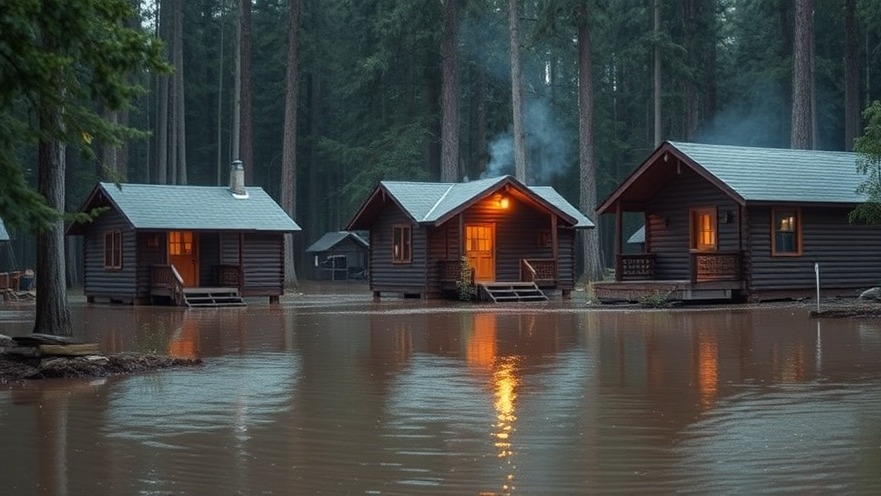
Texas Camps Unite Against Floodplain Regulations
After the tragic events on July 4, when flooding claimed the lives of 27 campers at Camp Mystic in Kerr County, responses from state legislators have sparked significant concern among youth camp owners in Texas. Specifically, owners from Camp Waldemar, Vista Camps, and Camp Stewart have expressed their opposing views about the proposed flood safety requirements led by Lt. Gov. Dan Patrick and backed by legislation moving through the Texas Legislature.
A Closer Look at the New Safety Bills
The proposed bills, specifically House Bill 1 and Senate Bill 1, aim to ensure that state licenses for youth camps are denied if their cabins are located within designated floodplains. While the intentions behind these regulations are laudable, the camp owners argue that the stringent interpretation of floodplain definitions could endanger their operations.
In a letter sent to Patrick, the camp owners emphasized the financial strife that could ensue if they are mandated to rebuild cabins that fall within the floodplain restrictions. They’ve requested for a professional review to ascertain an acceptable demarcation of safety zones and urged the need for financial assistance to help cover potential rebuilding costs.
Impact of Flood Safety Bills on Local Camps
State Senator Charles Perry, the author of one of the bills, has indicated that no funding will be available to help private camps comply with these new regulations. This has alarmed camp owners who note that the proposed rules could impose millions of dollars in financial burdens just as the camps are looking to recover from the devastating aftermath of COVID-19 and the summer’s floods.
* "The combination of devastating floods and the heavy financial burden proposed under new state regulations presents an impossible challenge," the camp owners stated, underlining the need for support from the government.
Concerns from Parents and Families
The push for stricter camp regulations has also been fueled by heart-wrenching testimonies from parents affected by the Camp Mystic tragedy. A growing notion is that preventing kids from staying in flood-prone areas could save lives, thus leading the legislative body towards accountability measures for camps.
Debating the Future of Texas Youth Camps
There's a palpable tension between safety and operational viability reflected in discussions around these safety regulations. While no one disputes that the safety of young campers must come first, the current legislative solutions are met with skepticism by camp owners striving to recover their businesses.
* * * The dialogue continues: Legislators are beginning to explore alternatives that could allow camps to operate safely while minimizing the financial burdens these new regulations impose, promoting a balanced approach towards future legislation.
Moving Forward Post-Tragedy
The future of youth camps in Texas might hinge on how effectively they can collaborate with policymakers to reshape potential regulations amid these dire circumstances. They're not only fighting to protect their businesses but to preserve a rich culture of outdoor education and connection that summer camps exemplify.
As communities statewide watch closely, the hope remains that both safety precautions and the preservation of cherished childhood experiences can coexist in future legislation. The advocacy from camp owners underscores a vital narrative: the need for collaboration between private enterprises and government to address safety without sacrificing the viability of youth camps.
 Add Element
Add Element  Add Row
Add Row 



Write A Comment